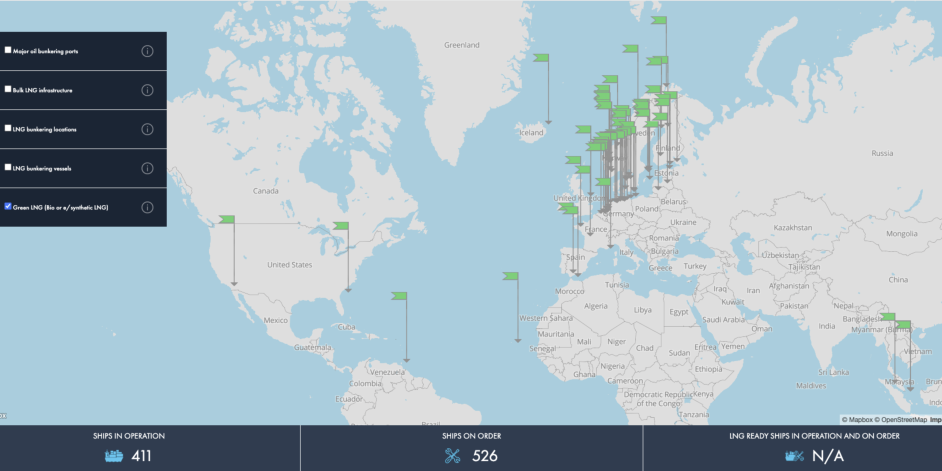SEA-LNG has conducted new analysis of the green LNG bunkering market which shows that bio-LNG is available today in almost 70 ports worldwide, including in Singapore, Rotterdam and the US east-coast. The data on the expanded availability of bio-LNG as a marine fuel is revealed in the coalition’s update to its online Bunker Navigator tool, which provides information on the bunker availability of fuels in the LNG pathway worldwide.
Annual production of biomethane, from which bio-LNG is produced, is currently around 30m tons or around 10% of shipping’s total annual energy demand.
The current global fleet of 355 LNG-fueled vessels, excluding LNG carriers, are all capable of using bio-LNG as drop-in fuel without any modification. Bio-LNG can also be transported, stored and bunkered in ports using the existing LNG infrastructure, which provides a route to further expansion of its availability in coming years.
In general, the use of bio-LNG as a marine fuel can reduce GHG emissions by up to 80% compared to marine diesel on a full well-to-wake basis. Depending on the method of production, bio-LNG can have net-zero or even net-negative GHG emissions on a lifecycle basis, creating immediate opportunities for vessel operators to cut GHG emissions and offering a sustainable route to decarbonization by 2050.
In October 2022, analysis by a team at the Nanyang Technological University’s Maritime Energy and Sustainable Development Centre of Excellence (MESD) which asked practical questions about bio-LNG emissions, availability and cost showed a huge global potential for the expansion of biomethane production of up to 20 times current production levels by 2050. Accounting for demand for other sectors, MESD forecast that bio-LNG as a marine fuel could be available in sufficient quantity to fully decarbonize approximately 13% of the global shipping fleet in 2050.
“The fact that bio-LNG is commercially available now and being used as a drop-in marine fuel by operators in Europe, North America and Asia, demonstrates the sustained contribution that the LNG pathway can make to decarbonizing our industry, starting today. Climate change is a stock and flow problem, the longer our industry waits to start using low-carbon fuels, the tougher the decarbonization challenge will be,” said Adi Aggarwal, General Manager of SEA-LNG.
More information on the bunkering availability of LNG, bio-LNG and e-LNG, and the development of LNG bunkering infrastructure worldwide can be found at SEA-LNG’s bunker navigator tool.
Source: SEA-LNG







